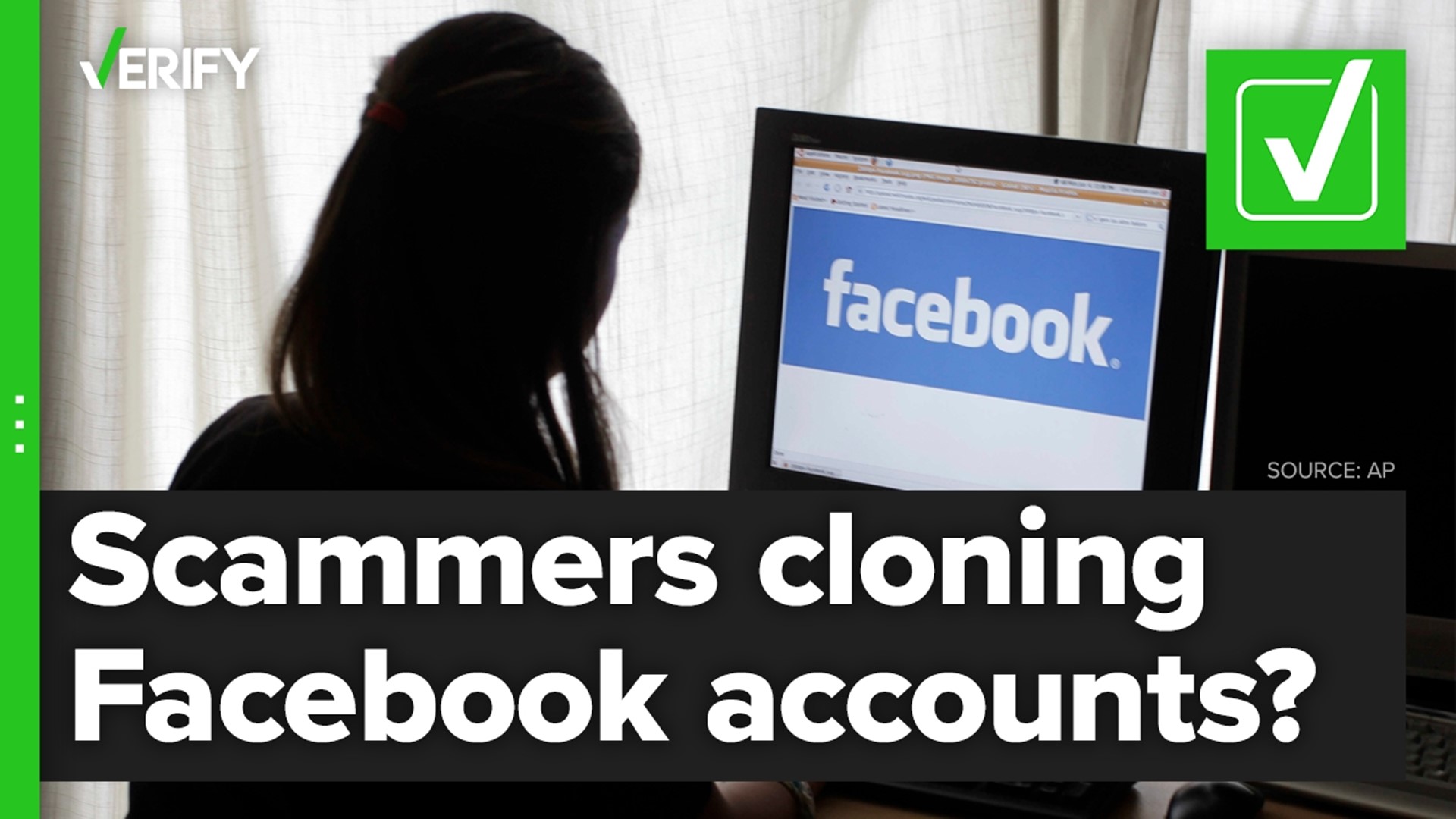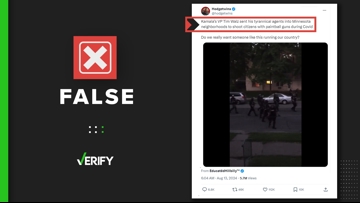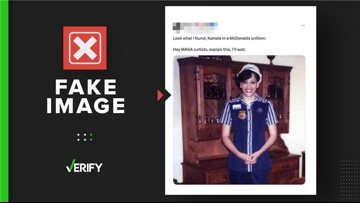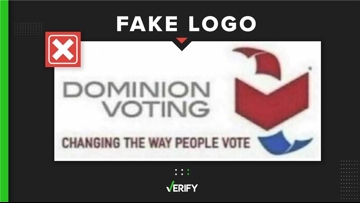Chain messages about account or data security regularly spread around Facebook. Although the people reposting these messages typically have good intentions, not all of them turn out to be warnings of real threats.
Michael reached out to the VERIFY team to ask about one of these trending chain messages. The message begins with “CLONED NOT HACKED” and goes on to warn that imposters are using users’ pictures and names to create a new account to add the victim’s friends.
“From that point on they can write what they want under your name,” the post warns. “Almost every account is being cloned.”

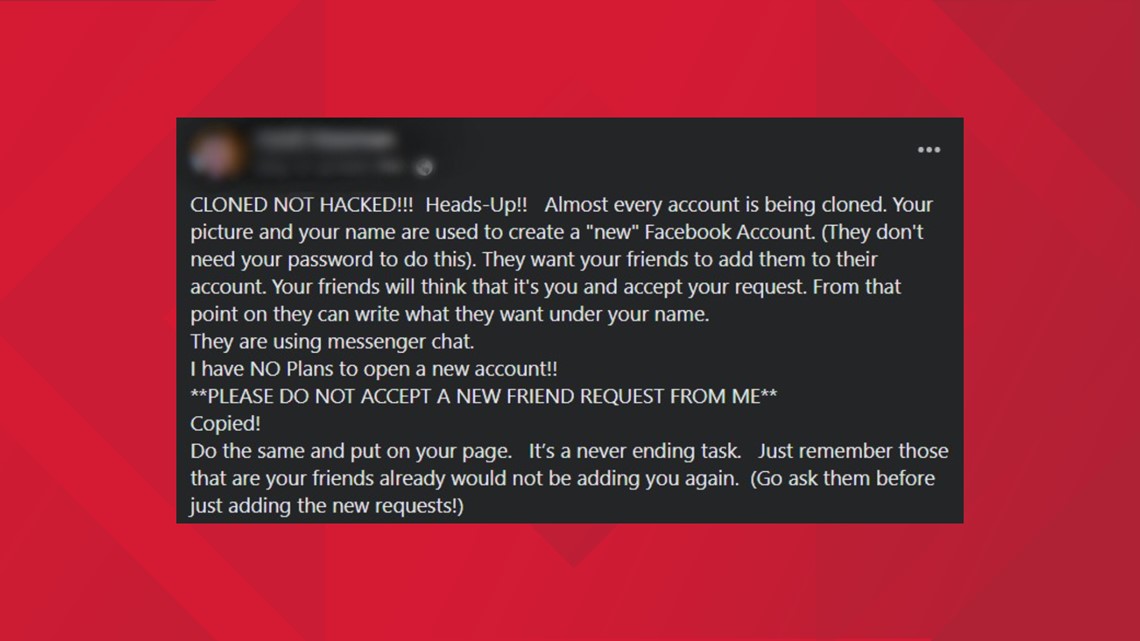
THE QUESTION
Are scammers “cloning” Facebook accounts?
THE SOURCES
NordVPN, a digital privacy company
BitDefender, a cybersecurity company
THE ANSWER
Yes, scammers are cloning Facebook accounts.
WHAT WE FOUND
Facebook cloning, digital privacy company NordVPN explains, is a technique where scammers use a person’s publicly available Facebook information to create a fake copy of the person’s profile.
“They don’t have to hack your Facebook profile, but they can still cause problems with their fake one,” NordVPN says.
BitDefender, a cybersecurity company, and NordVPN say scammers who clone accounts are looking to send malicious links to the person’s friends, manipulate the person’s family and friends to give them money with a fake story, extract the victim’s personal info from their friends to make the fake account look more convincing or compromise the person’s reputation by posting something inappropriate. Some of these scammers even try to report their victim’s legitimate account as the imposter.
A blog post from Walsh College confirms the chain message is correct when it says receiving a friend request from someone you’re already friends with is a good indication of a cloned account. A person can alternatively check if their account has been cloned by simply searching their name on Facebook.
Although Facebook doesn’t keep count of how many imposter accounts it takes down, it does track the total number of fake accounts, which includes imposter accounts, it removes. It says it penalized 1.6 billion fake accounts in the first quarter of 2022, over 99% of which Facebook found itself. The social media company estimates 5% of its monthly active users in the first quarter of 2022 were fake accounts.
So how does someone stop scammers from cloning their account? Well, there’s no foolproof way to do it. However, you can reduce the likelihood your account will be cloned with smart privacy settings.
BitDefender and NordVPN say you can make it harder for scammers to clone your account by going into your privacy settings to make it so only your friends or even just you can see your information. BitDefender says you should prioritize making your friends list hidden from the public and removing public visibility on future posts, photos and profile information such as email address and phone number.
If your account has already been cloned, report it to Facebook. Accounts that impersonate another account violate Facebook’s Community Standards, so Facebook is also likely to take down a clone account if it gets reported. Facebook says there are two ways to report an impersonator.
The first way is to go to the clone account, click the three dots underneath the cover photo, select “Find Support or Report Profile” and then follow the on-screen instructions. If you don’t have a Facebook account, you can report an impersonator using a Facebook report form.
More from VERIFY: Have you received a text from a wrong number? It could be a scam
